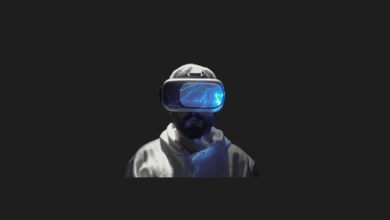
Why does the metaverse have to be decentralized? Do giant Web2 companies stand a chance of success? Will the Metaverse isolate people from real life? All the details.
From now on, with Web3 decentralized structures, users will have control over their data again. Every day, we donate thousands of different data to countless popular applications such as Instagram, Facebook, Twitter in the Web2 world. The control and responsibility of all this data is in the hands of billion-dollar companies. User data is also the biggest source of revenue, so how will that change?
Metaverse and Artificial Intelligence

Navigating the Metaverse resembles a journey through a video game, and it is poised to evolve into an experience mirroring real life. However, this integration will not result in complete detachment from reality, as we continue to be rooted in the physical world. Advancements in AI content production are expected to pave the way for a photorealistic metaverse, featuring exact replicas of ourselves, blurring the lines between reality and the digital realm. This hyper-reality will transform our online activities into a more immersive and visually captivating interface, surpassing the current cartoonish and low-resolution virtual content.
Presently, creating realistic digital content is costly, but emerging technologies in the metaverse aim to make it more accessible. As technology progresses, photo-realistic metaverse content is anticipated to become indistinguishable from the physical world. The catalyst for this transformation will be powerful AI content creation algorithms leveraging real-world data to flawlessly replicate digital versions of ourselves within virtual environments.
The critical question arises as the real world extends into the metaverse: How can we prevent malicious entities from manipulating a photo-realistic virtual representation of ourselves? Contemporary issues, such as scams through fake social media accounts, highlight the potential for harm. Decentralization becomes imperative in this context.
The expansive growth of the internet has led to the accumulation of vast amounts of personal data by major corporations. Every search query, comment, like, profile picture, email, and purchase contributes to the symphony of our digital identity, audible only to specific institutions and their algorithms. In contrast, the Metaverse intensifies data collection, featuring immersive content and richer data streams. While individuals may willingly exchange their cookie data for internet conveniences, caution is warranted when providing companies with control over unique biometric voice and facial data in the metaverse.

Compromising an individual’s personal identity in the physical world demands considerable time, resources, and entails potential consequences. However, in today’s internet landscape, the threshold for identity theft has significantly lowered, leading to millions of people falling victim to such attacks annually.
In the metaverse, safeguarding individuals’ data sovereignty becomes paramount, especially as the rich personal details within this data present fresh opportunities for malicious actors to impersonate individuals and exploit their identities.
Leveraging Web3 tools, including NFTs and blockchains, is crucial in addressing this challenge and ensuring a secure metaverse environment. These technologies play a vital role in enhancing the protection of personal information, ultimately mitigating the risks associated with identity theft in the evolving digital realm.











